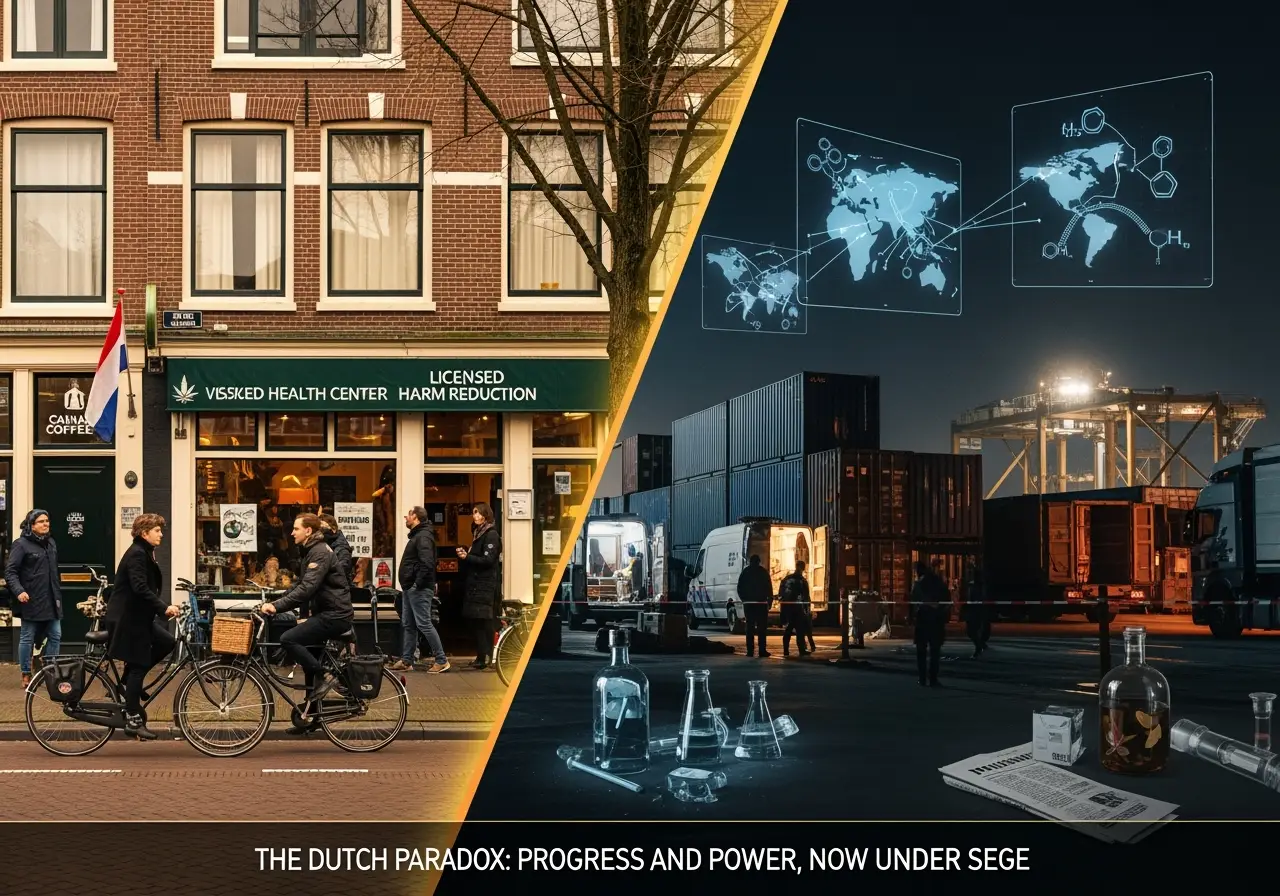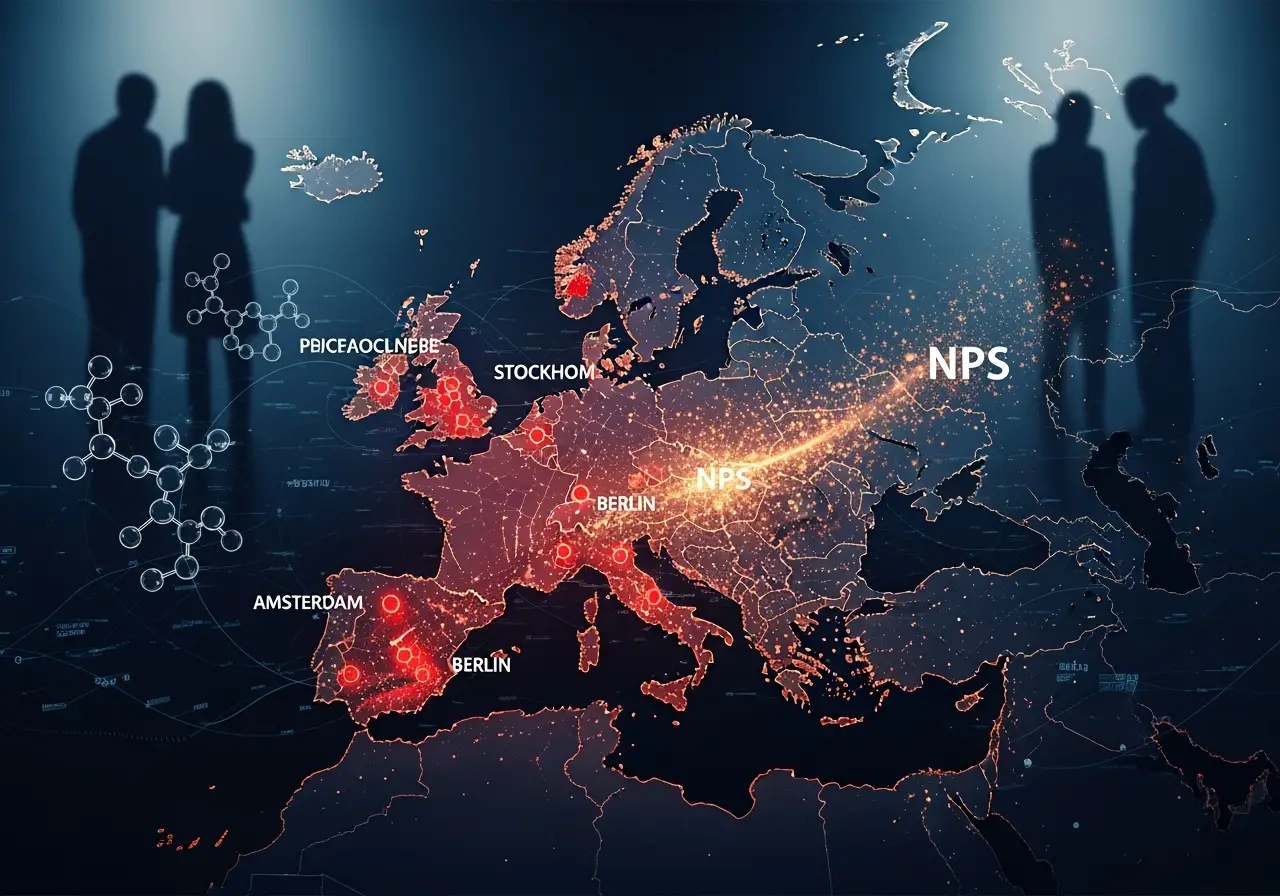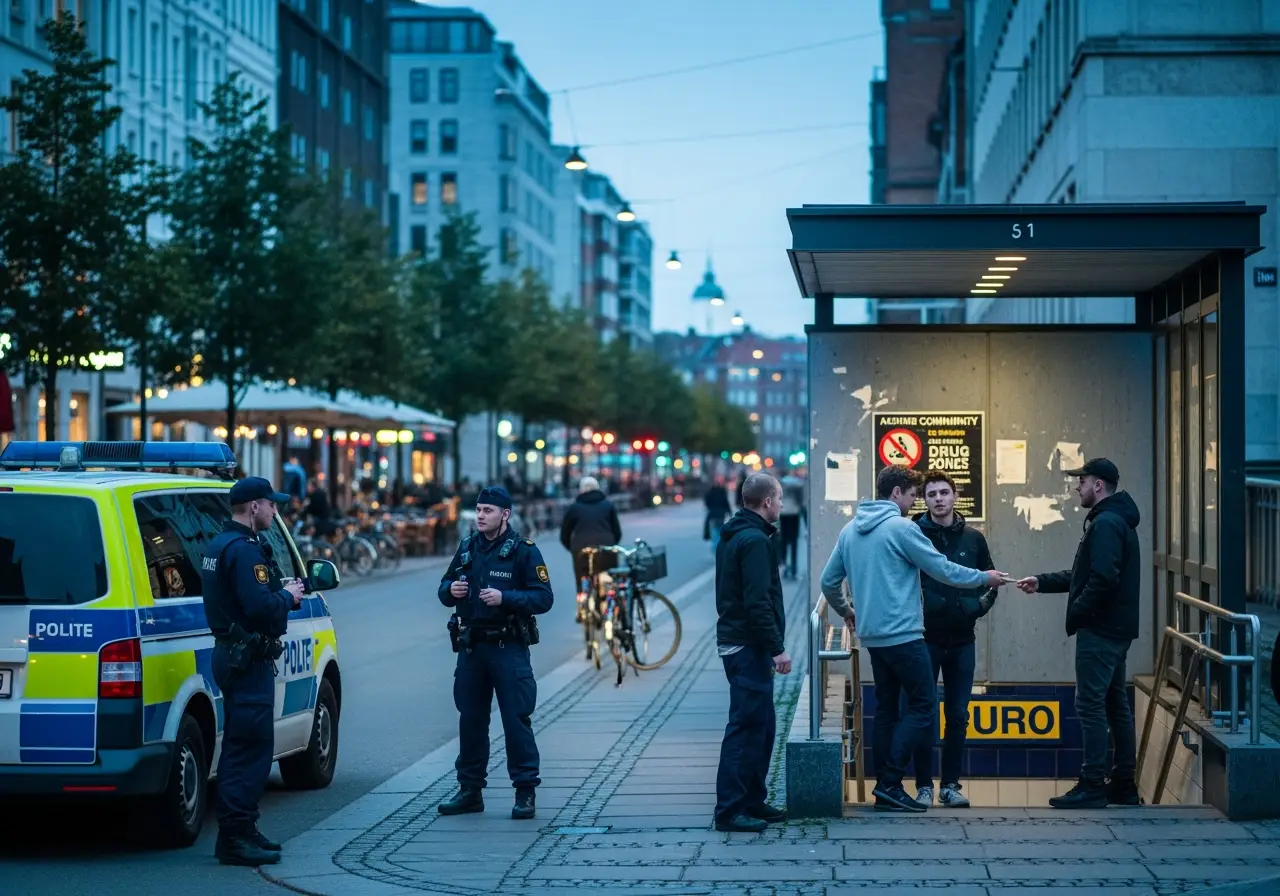The Netherlands has long been the international symbol of progressive drug policy. Its famed “Gedogenbeleid,” or tolerance policy, which allows cannabis to be sold in coffee shops, and its world-class harm reduction programs have been studied and emulated globally. But this image of pragmatic control is now clashing with a much darker reality: the Netherlands has become a nerve center for the global drug trade, a superpower in the production of synthetic drugs, and a society rocked by the brutal violence of organized crime.
The Dutch paradox is stark. While the nation successfully manages some aspects of public health related to drug use, it is simultaneously losing its grip on the criminal enterprises that have flourished in its tolerant environment. The country is now facing a crisis that threatens not just public health, but the very foundations of its rule of law.
The Coffee Shop Paradox: Closing the Backdoor?
For decades, Dutch drug policy has been defined by a glaring contradiction: while coffee shops were permitted to sell cannabis to consumers (the “front door”), the cultivation and wholesale supply of that cannabis remained illegal (the “backdoor”). This created a gray market that was inevitably exploited by criminal organizations.
In an attempt to finally resolve this issue, the government launched the “Closed Coffee Shop Chain Experiment” in 2025. This pilot program, running in several cities, licenses official growers to legally supply coffee shops with regulated, quality-controlled cannabis. While the experiment is a bold step towards a fully transparent system, it is a complex undertaking that highlights the immense challenge of disentangling a multi-billion-euro market from its criminal roots.
Europe’s Cocaine Gateway and the Rise of Narco-Violence
The Netherlands, and particularly the Port of Rotterdam, serves as one of the primary gateways for cocaine entering Europe. In 2023, Dutch authorities seized a massive 59 tonnes of cocaine, a figure that, while enormous, is believed to represent only a fraction of the total amount smuggled through.
This immense flow of money and drugs has spawned ruthless criminal organizations, most notably the “Mocro Maffia.” The violence associated with these groups has become shockingly public and brutal. It has moved beyond inter-gang warfare to direct attacks on the fabric of the Dutch state, including the high-profile assassinations of lawyer Derk Wiersum in 2019 and investigative journalist Peter R. de Vries in 2021. This is no longer just drug trafficking; it is narco-terrorism that has instilled a new level of fear in society.
The World’s Drug Laboratory
Beyond being a transit hub, the Netherlands is a global leader in the production of synthetic drugs. Law enforcement regularly dismantles sophisticated labs producing industrial quantities of MDMA (ecstasy) and, increasingly, crystal meth. In 2023, 32 MDMA production sites were dismantled, a number that likely only scratches the surface.
This industrial-scale production has two devastating consequences. Firstly, it floods Europe with high-potency synthetic drugs, fueling party scenes and creating new addiction crises. Secondly, it creates an enormous environmental problem, as for every kilogram of MDMA produced, traffickers dump approximately 58 kilograms of toxic chemical waste into the countryside, poisoning soil and water supplies.
A Different Kind of Human Cost
Due to its long-standing and effective harm reduction policies—including heroin-assisted treatment and accessible safe consumption facilities—the Netherlands has a relatively low number of direct overdose deaths compared to many other nations, with around 300 fatalities recorded in 2022.
However, the human cost in the Netherlands is measured differently. It is tallied in the lives lost to shocking narco-violence, the corruption that infiltrates port logistics and other sectors, the fear instilled in communities, and the normalization of drug use among youth. When drug trafficking becomes a major economic force, it erodes public trust and the rule of law, representing a profound societal cost.
Reclaiming the Future from a Criminal Grip
The Dutch situation is a cautionary tale. It shows that tolerance and harm reduction, while vital for public health, are not enough to counter the power and violence of a globalized drug trade. The Netherlands is now forced to ramp up its law enforcement and security measures to fight a war it never intended to host.
This crisis underscores that the root of the problem is the unrelenting demand for drugs. This is where the Narconon program offers a fundamental solution. By providing a path to a life completely free from drugs, Narconon directly addresses the demand that fuels these violent criminal enterprises. Through its unique drug-free detoxification, life skills training, and ethical guidance, the program doesn’t just help individuals escape addiction—it empowers them to become productive, contributing members of society who are no longer part of the market that organized crime depends on. To truly solve its paradox, the Netherlands needs more than just policies; it needs to heal the individuals whose demand for drugs has inadvertently fed a crisis that now threatens the entire nation.
Sources:
- European Monitoring Centre for Drugs and Drug Addiction (EUDA) / European Drug Report
- Trimbos Institute (Netherlands Institute of Mental Health and Addiction)
- Dutch National Police and Government Reports
- Data synthesized from national and European reports on the drug situation.



